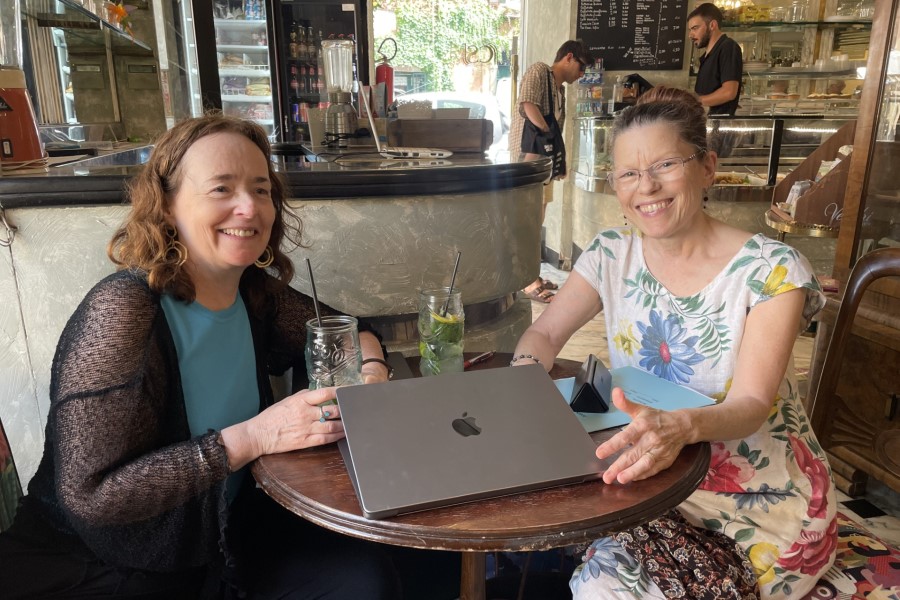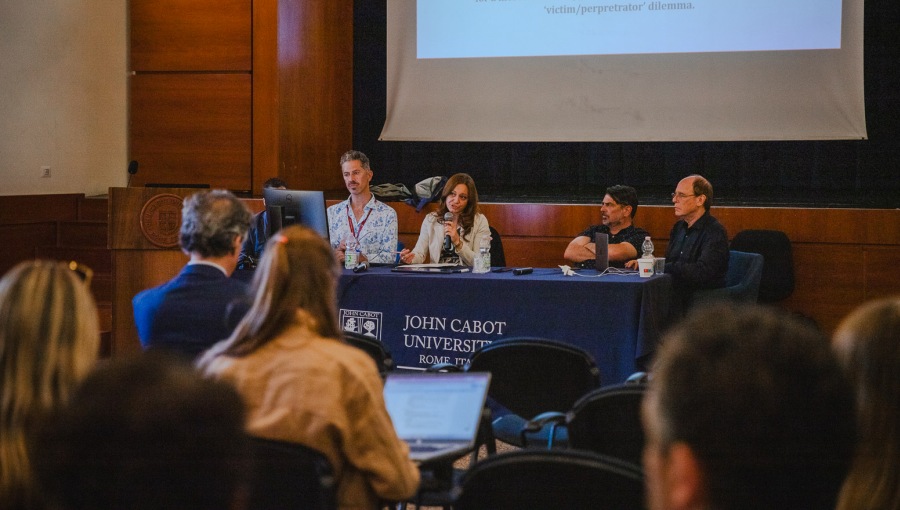The Power of Words: Student Janet Kimani
Janet Kimani is a transfer student from Nairobi, Kenya. She is currently a senior majoring in International Affairs and minoring in Legal Studies and English Literature. Janet recently published an article called “Racial Trauma: Should it Be Given More Recognition in the Mental Health Sphere?” in The New Global Order, a website where young and politically active people contribute articles and opinions on current global phenomena.
What brought you to JCU?
I originally started my undergraduate studies in Nairobi, where I was a Law major. After about two years, I realized that I didn’t quite feel as fulfilled as I would have wanted, so I decided to look into transferring schools. At that point I wasn’t sure where to go next, all I had was the deep desire to visit my dream city, Rome. With this desire as my only lead, I decided to look into American universities in Rome and that’s how I found JCU, which was the perfect fit!
How did you become passionate about writing?
My passion for writing largely grew from my passion for reading. From a very young age, my parents fostered a reading culture at home and infused their love for literature in my siblings and me. Through literature, I was able to see the innate power of words to move, to inspire, and to evoke deep emotions. Later when I started taking writing classes in primary school, I realized how easy it was for me to express myself through writing, and how much I enjoyed it. Eventually, writing became my safe space and transformed from simply a hobby to a passion.
Tell us more about your article “Racial Trauma: Should it Be Given More Recognition in the Mental Health Sphere?” published in The New Global Order.
My article explores the topic of racial trauma and the fact that it should be given the same importance as other disorders in the mental health realm. I was inspired to write about racial trauma following the recent and highly publicized incidents involving George Floyd and Jacob Blake. On a personal level, these events affected me and caused feelings of distress that I couldn’t quite pinpoint. Upon looking into it, I realized that my feelings were most likely a result of race-based stress caused by constant exposure to these images, and experiences in my own life. It then dawned on me how much more stress and trauma those directly involved in such incidences must have been going through. I was compelled to do some more digging, and I discovered how little was known and written on the topic. Therefore, I took it upon myself to gather the information I had found and write this article to spread awareness about this very important topic. This article is therefore not only a tool for knowledge but also one for compassion and validation.
In 2018 you won The Albert Walker Fuller Prize for Op/Ed Articles with your piece “You Were Fat but Now, You’re Hot!” Tell us more about it.
This article was inspired by an interesting conversation I had with a friend who was excited about a compliment she had received, “You were fat, but now you’re hot!” I was struck by what the comment implied, that attractiveness and weight loss were synonymous. The comment undoubtedly exposed some of the prevailing beauty standards in our society, imposed predominantly on women. The article was therefore a response to the comment, and a counter to any ridiculous beauty standard. It simply says, don’t cave to anyone’s idea of beauty, you’ve always been hot!
You are a staff writer at The Matthew, JCU’s newspaper. What did you learn from this experience, what challenges did you encounter, and how did you overcome them?
Working as a staff writer at The Matthew has been one of the most gratifying experiences that I’ve had here at JCU. I have had the pleasure of working in a team of incredibly talented and passionate individuals. Under the great leadership of Professor Elizabeth Macias-Gutiérrez, I have sharpened my journalistic skills and acquired other competencies in the field, ranging from work ethic to research. The great team dynamic at The Matthew proved to be invaluable when we faced various challenges, which we were able to overcome as a team, with the strong leadership of former Editor in Chief, Adriana DeNoble. Apart from giving me a platform to share my work, The Matthew has taught me the power of teamwork and great leadership.
What’s one tip that you would give to aspiring writers?
Just keep writing! The more you write the better you get at it, so look at every opportunity to write as an opportunity for growth. For me, this was through The New Global Order and The Matthew, but for you, it could mean starting a blog or keeping a personal journal. Consistency helps keep the creative juices flowing, and just like the adage goes, practice makes perfect!
You are a member of JCU’s Model United Nations Society. How is this experience shaping you?
MUN has allowed me to explore my love for international affairs. It has helped me grow as a leader and debater, and increased my awareness of global issues. It goes without saying that one of the best parts of MUN has been attending international conferences and getting to interact with delegates from everywhere in the world, who often end up becoming long term friends. MUN has pushed me out of my comfort zone and taught me how to see contentious political issues from all perspectives, all while fostering the idea that we are all global citizens.
What are your plans for the future?
My immediate plan is successfully graduating this December! I am certainly interested in exploring avenues where I can further pursue my passion for writing. I am generally an optimist and so despite all the uncertainties in our world currently, I am excited about what my future holds, and all the pieces I have yet to write!






